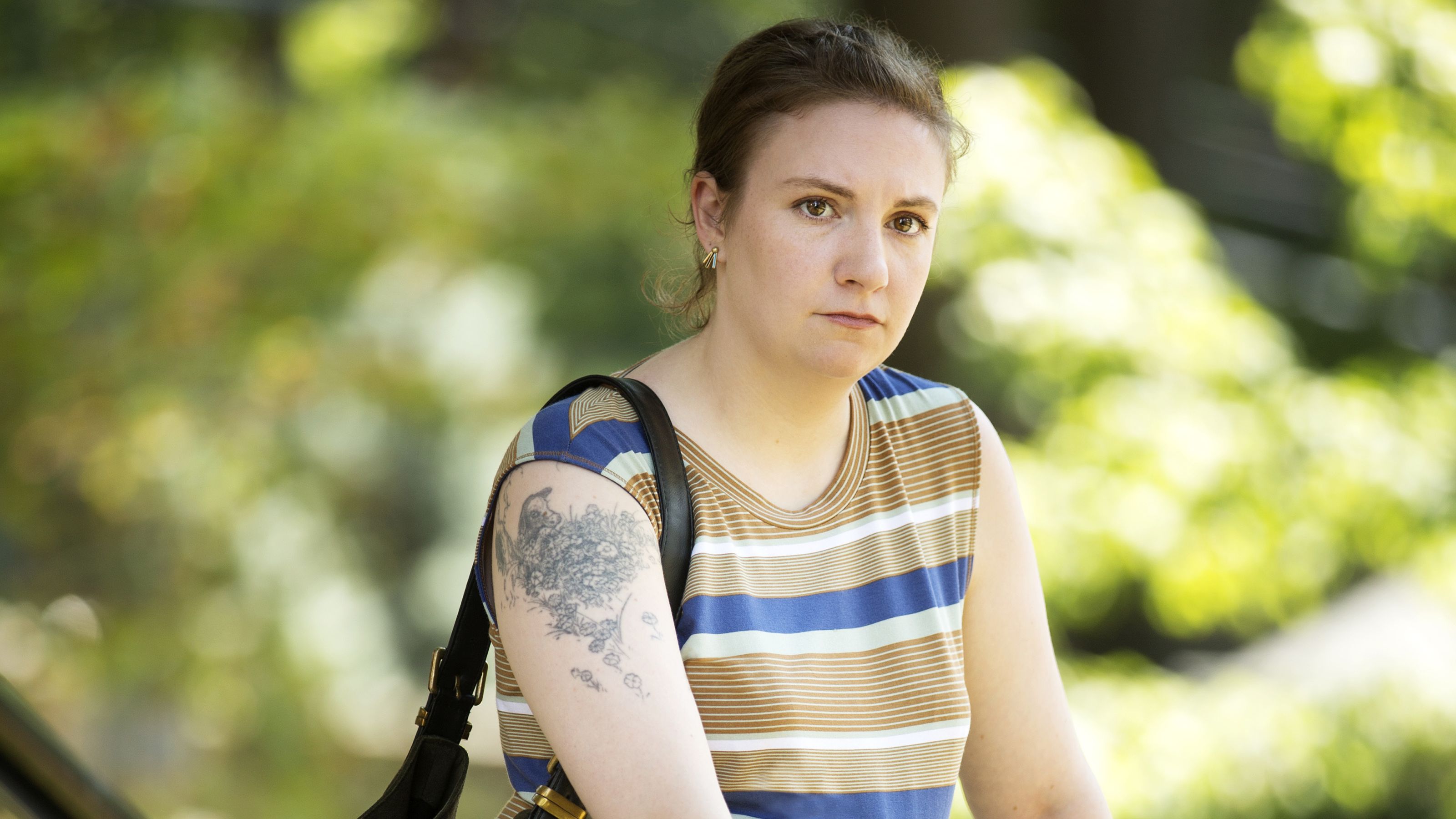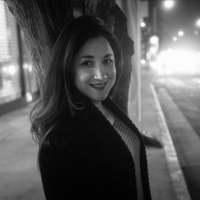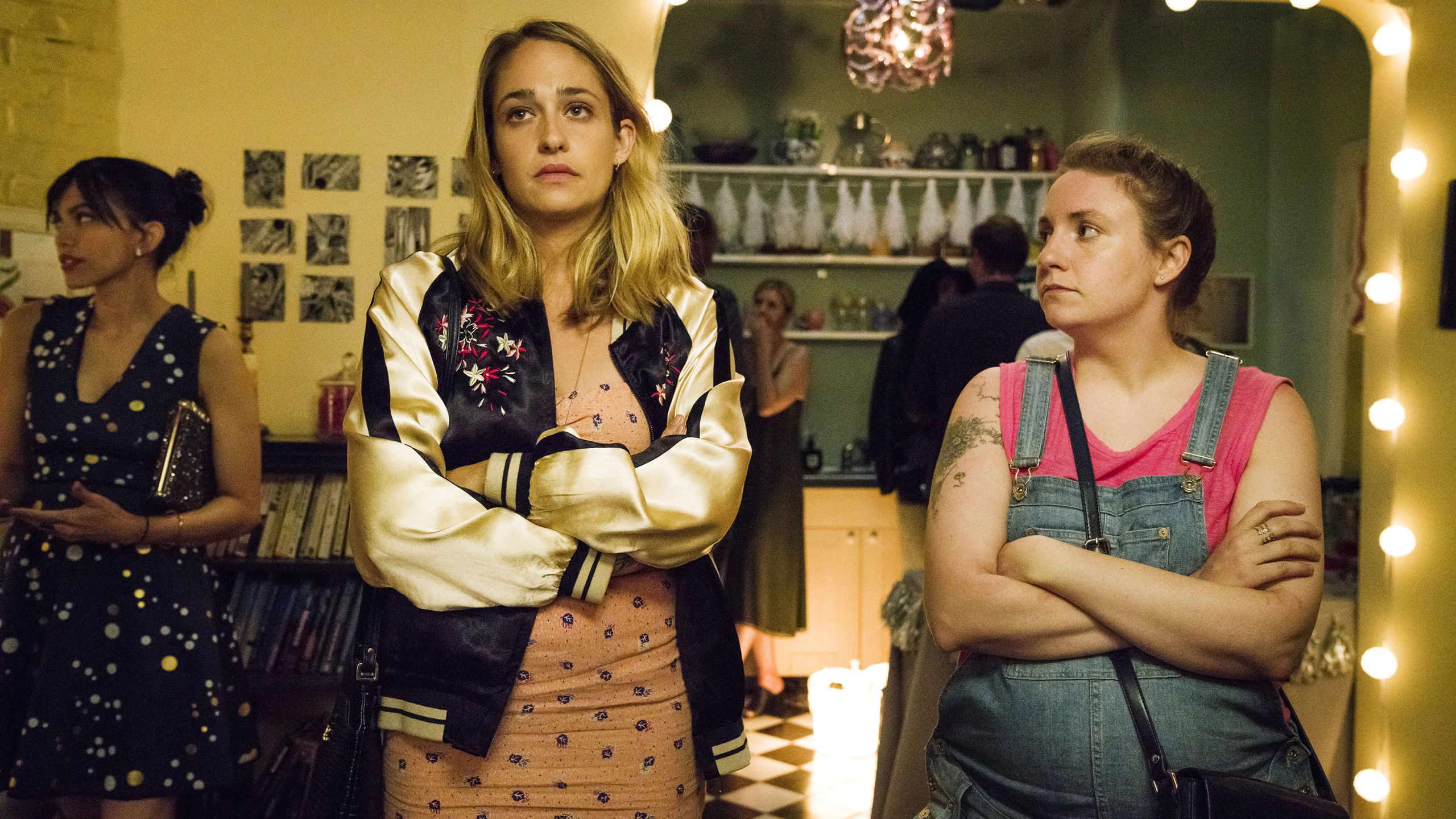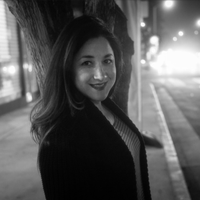Hannah Horvath Should Have Had an Abortion
The Girls writers failed their protagonist.


If you've been following the final season of Girls, you've probably noticed that the 20-something, single, semi-employed Hannah Horvath has chosen to keep her baby. Which is 1,000 percent her decision. But maybe it's not the right decision.
It took me by surprise and—as a fellow feminist—even made me a bit angry that a young woman on the cusp of so much (who is being written by a young woman who's already accomplished so much) would stop everything to do the thing young women have been doing in movies and TV for so many years: have a baby they didn't choose to have in the first place.
Despite the Trumpian world we live in, women do have a choice. We can choose to get an IUD (I did). We can chose to plan a pregnancy. And we can (for the time being) choose to abort one when life throws us a curveball. These are all rights that are currently in the crosshairs. It is, no doubt, a scary time to be a woman in America. So why would the very progressive, very outspoken, very frequent "voice of our generation" back away from what this moment could be: a major opportunity to highlight, advocate for, and—as Lena Dunham has done through her show so successfully so many times—spark a serious and necessary discussion about what really matters?
Like many Girls viewers, I've always connected with Hannah on a personal level, whether she's her painfully messy self or her optimistically ambitious one. Her character has been, up until now, so complicated, unapologetic, and surprising that it makes her feel, in many ways, real. Which is why it saddens me to watch her suddenly become so flat—to go through with a pregnancy just because, to quote her own rationale, why not now?
I get that this might not be a popular opinion, but when it comes to narrative accuracy, popular opinion feels like a moot point. Never mind the fact that unexpected motherhood is the most played-out trope on TV. There are just so many reasons this was a disappointing narrative choice, and that the Girls creators should have written the story so that Hannah got an abortion instead, like...
It Makes More Sense for Her Character.
Hannah isn't someone who makes you think, "Wow, what a put-together person." She makes reckless decisions on a whim, she can't multi-task, and her short stints of employment are usually followed by longer stints of unemployment, gross procrastination, and general antipathy about what she wants to be when she "grows up." This doesn't make Hannah unlovable or a bad person, but it does make her a product of her generation, of being white, and of being privileged. She shouldn't be shunned for it. In fact, Hannah's imperfections make for quite a compelling TV show—as the popularity of Girls proves.
The thing is, Hannah is also incredibly self-aware. We know she's not particularly capable of taking care of another person, so why doesn't she know it?
Get exclusive access to fashion and beauty trends, hot-off-the-press celebrity news, and more.
The Rationale for Her Choosing to Keep the Baby Is Actually Pretty Anti-Feminist.
When Marnie argues that motherhood will give Hannah "somebody else to consider," she's projecting an idealized scenario where bringing a human baby into the world "sets a woman straight." This is a tired trope, and one that implies women need babies to fix them, make them better, or make them complete.

It's Narratively Lazy.
The final episodes of Girls—while praised for being its best thus far—seem surprisingly uncomplicated for a show that's known for its nuanced character development. Plot lines are already being wrapped up in pretty bows, as so often happens in final seasons, and Hannah's pregnancy is no different. Sure, the pregnancy itself might be realistic, but the decision to keep the baby when so much of Hannah's life is a huge question mark comes off as a cheap way to redeem her of her transgressions.
"I know I want a baby someday, so why not make someday now?" Hannah muses at one point to her on-again-off-again-finally-totally-off-again boyfriend Adam on the banks of the Hudson.
Fair, but is "someday" happening now because it makes sense for Hannah as a human, or because the writers have to find a way to bring things to a close?
Not Enough Abortions Are Shown on TV.
There is still a very real and very hurtful stigma about women who choose to abort pregnancies, and there's a clear way to help put an end to it: Expose more people to their plights. Make more Americans aware of women's experiences—and the real, raw, emotional reality that goes with them—and you make more empathetic Americans.
While Girls has tackled the subject of abortion before (Jessa scheduled one in the first season—but, in another avoidance of the issue, it never happened because her character realized she wasn't actually pregnant), this time HBO and Dunham don't find themselves on that progressive bandwagon—which just seems so off when you consider the type of woman Dunham's been trying to portray this entire time.
Through Hannah, Girls could have pushed boundaries and sent a powerful message that sometimes choosing an abortion is the mature thing—even if it doesn't feel like it. That has to be a better ending than "life's a mess, might as well have a baby," right?
We're nominated for a Webby Award—but we need your vote to win! Vote for the Women and Guns project here.
Valentina Valentini (yes, that's her real name) is a freelance journalist writing about movies, TV, travel, food and humans (herself included) for Vanity Fair, Los Angeles Times, Variety, New York Magazine and more

